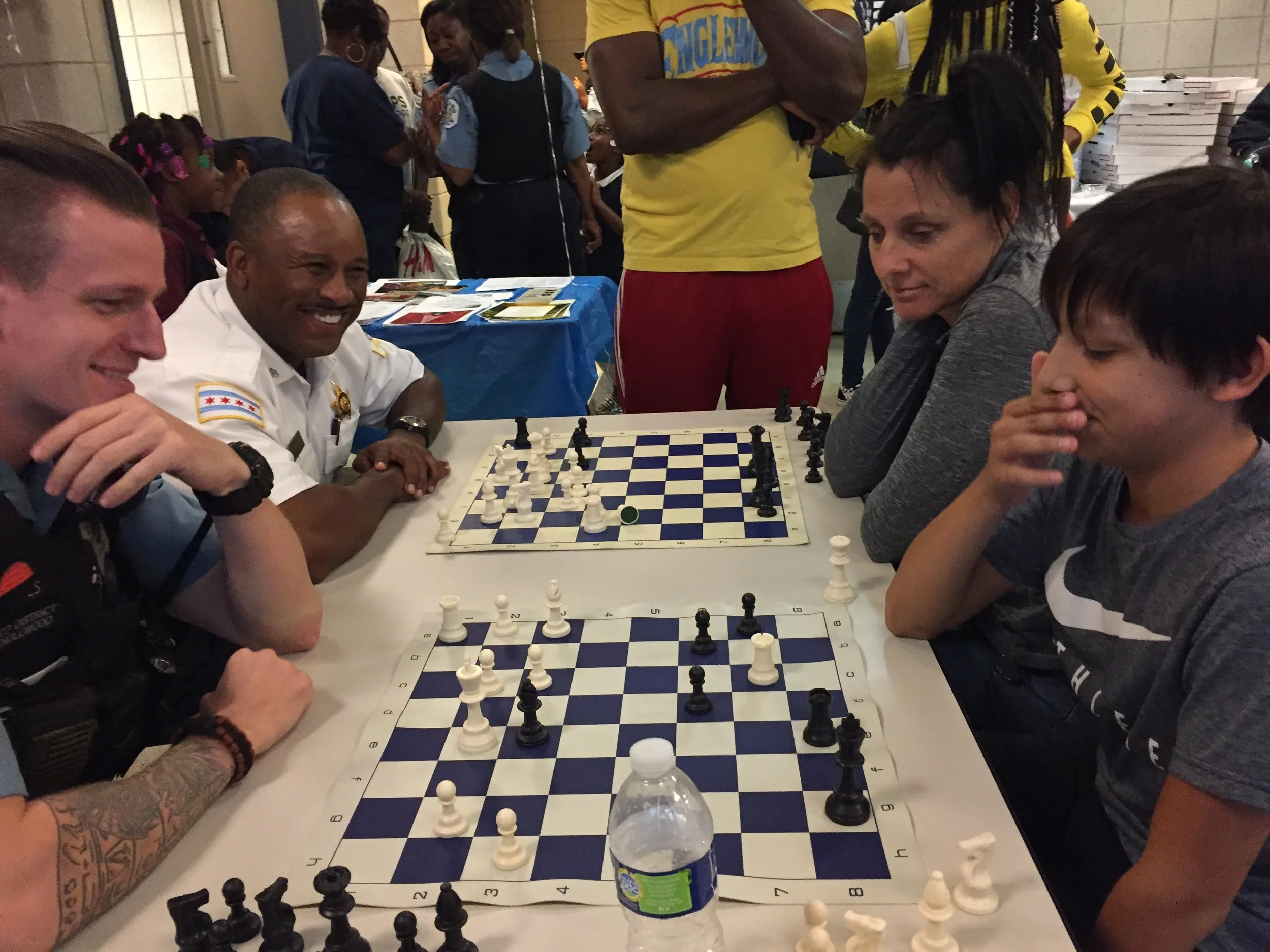Operationalizing Community Policing
Clients: Chicago Police Department
Partners: Partnership for Safe and Peaceful Communities, Civic Committee of the Commercial Club of Chicago, The Joyce Foundation
Challenge: Community policing is a philosophy that emphasizes collaboration between police and the community to build trust and solve problems. The Chicago Police Department's (CPD) consent decree mandates that every CPD member – sworn officers and civilians – be responsible for making community policing a core component of its programs, training, resource deployment, and accountability systems. Community policing is a shared focus of the Partnership for Safe & Peaceful Communities, the Civic Committee of the Commercial Club of Chicago’s Public Safety Task Force, and Mayor Brandon Johnson’s People’s Plan for Community Safety.
In 2024, Superintendent Larry Snelling committed that every member of CPD will be a community policing officer in his goals to the Community Commission for Public Safety and Accountability (CCPSA). While progress has been made to incorporate community policing strategies, CPD has identified two main challenges to fully operationalize Superintendent Snelling’s vision. First, the department needs to develop a cohesive vision for community policing. Second, current community policing programs are assigned to specific CPD members, which reinforces the perception that only those officers are responsible for implementing community policing goals.
Action: Starting in May 2024, Civic Consulting Alliance committed to a year-long project to provide overall project management for the community policing initiative and play a key role in building the strategy and roadmap that advances Superintendent Snelling’s goal for community policing.
In July 2024 we identified the key behaviors and mindsets required to fully operationalize the Superintendent’s vision for community policing for all CPD members. Deliverables included synthesis of interviews and focus groups with 150 members of CPD.
Civic Consulting Alliance will support a community input process so that residents across Chicago can add their voices to the future of community policing at CPD. We will also leverage analysis of effective practices nationwide, assess the current state of community policing at CPD, and provide high-level recommendations about strengths and opportunities within the existing community policing portfolio. Once the strategy for community policing is defined and validated, we will support CPD in articulating a roadmap to implement this future state approach.
Result: Operationalizing department-wide community policing is critical to the success of Superintendent Snelling’s change management agenda, meets a requirement of the 2019 Consent Decree for CPD, and aligns with collaborative community safety initiatives between the public, private, and philanthropic sectors. Ultimately, a CPD-wide approach to community policing will create a safer Chicago for those who live, work, and visit here.

